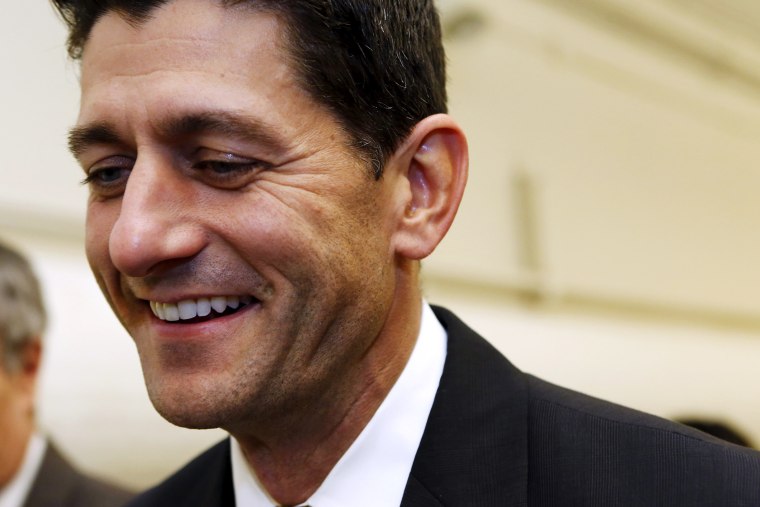Rep. Paul Ryan announced Thursday that he will seek to replace Rep. John Boehner as speaker of the House.
The 2012 Republican nominee for vice president reversed his previous position that he wasn't interested in the job after intense public pressure from the Republican caucus, which deemed him the lone consensus candidate for the role. After repeatedly saying he didn't want the the job, which is third in line to the presidency, the Wisconsin lawmaker appeared to hedge this week, presenting a series of conditions under which he would run with an emphasis on party unity.
"We have an opportunity to turn the page, to start with a clean slate, and to rebuild what has been lost. We can make the House a more open and inclusive body—one where every member can contribute to the legislative process. We can rally House Republicans around a bold agenda that will tackle the country’s problems head on. And we can show the country what a commonsense conservative agenda looks like," Ryan wrote to a letter to members of the House Republican conference on Thursday.
RELATED: A brief guide to Paul Ryan’s love-hate relationship with the right
The biggest potential roadblock to Ryan's speakership had been widely viewed as the fiercely conservative House Freedom Caucus, which believed that the leadership under Boehner was not adequately representative of the conservative base and stifled their influence through the procedural process in the House.
On Wednesday, the Freedom Caucus declined to formally endorse Ryan or his specific requests (including a call to reform a "motion to vacate the chair" rule that was considered a constant threat to Boehner's standing), but a solid majority of them said they would vote for him as speaker. Meanwhile, Boehner himself predicted that same day that Ryan should have all the support he needs to replace him.
Although Ryan has expressed solidarity with the Freedom Caucus' goals, it's also clear that he isn't interesting in intra-party warfare. "Whatever our differences, we’re all conservatives. We were elected to defend the constitution. We share the same principles," Ryan wrote on Thursday, adding that he "never thought he'd be speaker."
"After talking with so many of you, and hearing your words of encouragement, I believe we are ready to move forward as a one, united team. And I am ready and eager to be our speaker," he added.
Had Ryan chosen to stay out of the race there was no clear favorite alternative. Rep. Kevin McCarthy, who was previously viewed as Boehner's heir apparent, withdrew himself from consideration earlier this month. Ryan has the backing of most of the GOP candidates for president, too. On Thursday Dr. Ben Carson praised his entry into the speaker race, saying the Congressman is "nimble with the facts and with the numbers."
"He has good experience and he can reach across the aisle in terms of different factions of the Republican Party and that's very important right now," Carson added.
